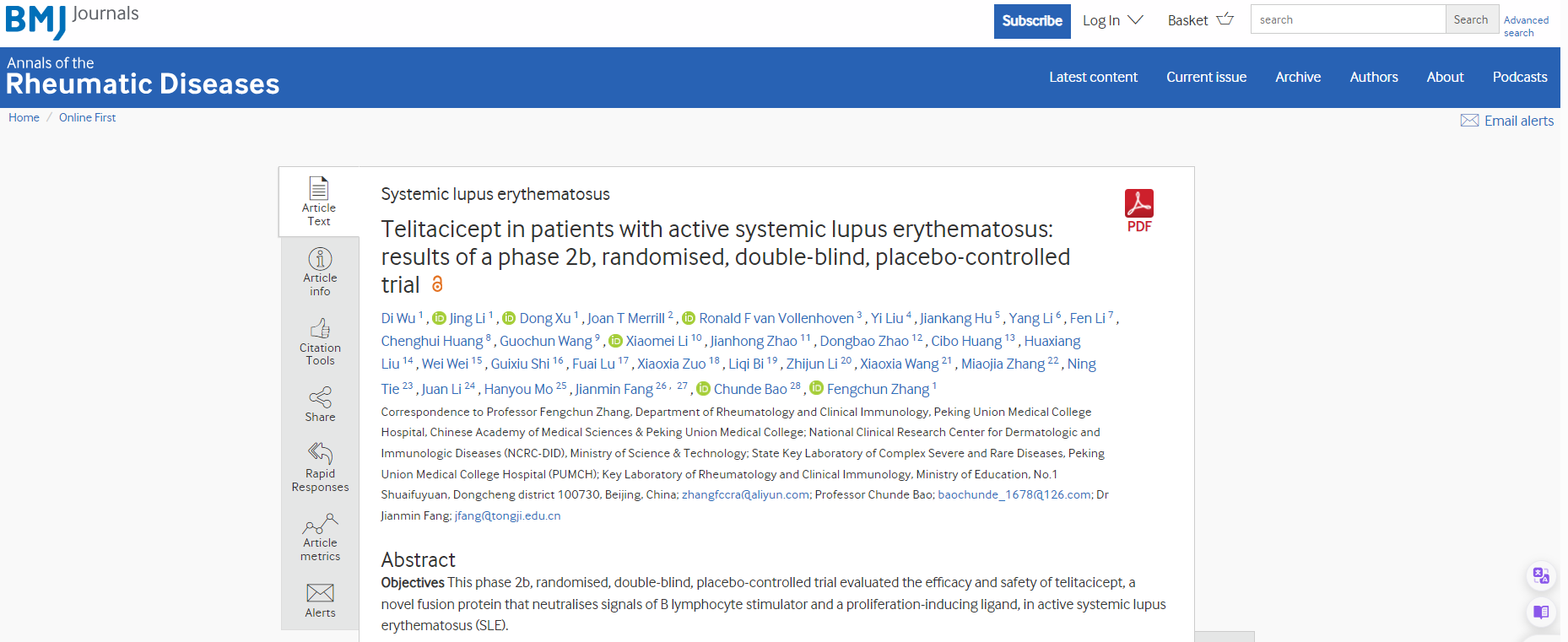On December 25, RemeGen Co., Ltd. (688331.SH/9995.HK) announced that the full text of a clinical study of Telitacicept (Tai’ai®) in the treatment of active systemic lupus erythematosus was recently published online in the Annals of the Rheumatic Diseases, the journal with the highest impact factor in rheumatology.

Annals of The Rheumatic Diseases (impact factor 27.4) was founded in 1939. It is a sub-journal of the British Medical Journal (BMJ) and the official journal of EULAR, is also the original journal with the highest impact factor in rheumatology in the world. The journal is committed to promoting the highest standards of scientific communication and education covering all aspects of rheumatology. It mainly publishes basic, clinical and translational scientific research, including authoritative management guidelines for various diseases, has an authoritative global editorial board and a growing international readership.
The text published in the journal this time is a multi-center, randomized, double-blind, placebo-controlled phase 2b trial, reporting the efficacy and safety of standard treatment combined with three dose groups of low, middle and high doses of Telitacicept and placebo in adult patients with active SLE.
The trial was led by Professor Zhang Fengchun of Peking Union Medical College Hospital as the principal investigator. A total of 249 adult patients with active SLE were enrolled in the trial. The results showed:
At Week 48, the response rate of the SLE Responder Index (SRI4) (71.0% in the 80 mg group, 68.3% in the 160 mg group and 75.8% in the 240 mg group, p < 0.0001) in the Telitacicept group was significantly higher than that in the placebo group (33.9%).
The percentage of patients in the Telitacicept group with a reduction of SELENA-SLEDAI score ≥4 points was higher (75.8% in the 80 mg group, p=0.003; 77.8% in the 160 mg group and 79.0% in the 240 mg group, p < 0.01), which was significantly higher than that of the placebo group (50.0%).
The conclusion showed that the study met its primary endpoint, with a significantly higher proportion of patients in the Telitacicept group achieving an SRI-4 response at Week 48 than in the placebo group, and all doses were well tolerated.
Telitacicept, an antibody fusion protein molecule invented and designed by CEO of RemeGen, Professor Fang, has been found to effectively inhibit the overexpression of two cytokines, BLyS and APRIL. This “two-pronged approach” has shown promising results in preventing the abnormal differentiation and maturation of B cells, making Telitacicept a potential treatment for autoimmune diseases. At present, Telitacicept has been approved for marketing in China for systemic lupus erythematosus indications, the new drug marketing application for the treatment of rheumatoid arthritis has been accepted by NMPA, and phase 2 and phase 3 clinical trials are underway for multiple indications for the treatment of other autoimmune diseases.
